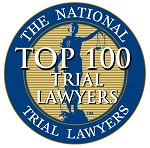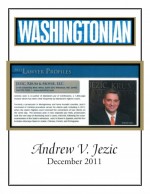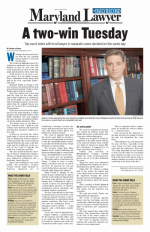A Damascus man accused of running down two Potomac men in December with his mother’s black Honda Civic — killing one and injuring the other — pleaded guilty Tuesday to second-degree murder and first-degree assault.
Fernando Josue Valenzuela, 21, faces 20 years in prison for the crime, according to his plea agreement. He could have faced up to 55 years if found guilty in a trial.
Valenzuela had gotten off work at around 10 p.m. Dec. 4. He and friends bought some Blue Moon beers and drank together, before driving to a nearby McDonald’s restaurant to eat, Assistant State’s Attorney Eric Nee said in court.
Witnesses told prosecutors that Valenzuela is “somewhat shy” when sober, but more combative when he drinks, Nee said.
The restaurant was closed, he said. Instead, they went to a 7-Eleven convenience store across the street, where they met Billie and James Genies, two brothers from Tobytown Drive in Potomac. The brothers asked Valenzuela for a ride to Gaithersburg, and said they would give him and his friends some marijuana for the ride.
“Things between the young men were very cordial,” Nee said. “There was no animosity.”
In Gaithersburg, the men got out of the car near Lakeforest mall to relieve themselves, Nee said.
Nee told Judge David Boynton that as Valenzuela got back into his car, the Genies brothers began walking away, without paying Valenzuela or giving him any marijuana.
Valenzuela became angry and started following them slowly in the car, Nee said.
Valenzuela told two other passengers in the car, “I’m going to hit them. I’m going to run them over,” Nee said. He sped up, passed them and circled back around. Then, he swerved toward the brothers, and plowed into them near the entrance to The Avalon School.
Police couldn’t determine how fast the car had been going, but “the force … knocked them out of their shoes,” Nee said. The impact demolished the Honda’s windshield, he said, and dented its hood.
Valenzuela drove off, abandoned the car nearby and called a friend, who drove him back to Damascus, Nee said.
James Genies, 35, was knocked unconscious by the impact. After he woke up, he ran to his girlfriend’s house and called police, who found the brothers’ shoes, hats, and cellphones strewn across West Diamond Avenue near The Avalon School when they arrived.
Billie Genies was suffering from “massive trauma to his head,” according to Valenzuela’s charging documents. He died at the scene.
Rescue personnel took his brother, James, to a local hospital for his injuries, which were not life-threatening.
Valenzuela’s father, Edgar Fernando Valenzuela, said in an interview that his son called him around 3 a.m., shortly after the accident.
“It surprised me when they said somebody was dead. … I didn’t believe it at first. My son is a good son,” Valenzuela said.
His son, the second of five, worked full time in construction, as well as at Chipotle, while he saved to go to college, he said.
The elder Valenzuela said his son decided to plead guilty while in protective custody in jail.
“It broke my heart,” he said of his son’s decision to plead guilty to the charges.
“He didn’t feel good about what he did to the Genies family,” Valenzuela said.
Valenzuela pleaded guilty to the “depraved heart” version of second-degree murder, meaning he acted with “extreme indifference for human life,” but didn’t necessary intend his victim’s death, said Andy Jezic, his lawyer.
Valenzuela is in protective custody in the jail because James Genies is an inmate there, as well, Jezic said.
Genies was arrested in February in a separate incident and charged with second-degree assault, resisting arrest, and other charges, online court records show. He has a trial date scheduled this month in Rockville District Court.
His family members, including his mother and grandmother, declined to speak to media after Valenzuela’s plea.
Ramon Korionoff, a spokesman for the county’s State’s Attorneys Office, said the plea held Valenzuela accountable for his actions, which showed “callousness and disregard” for his victims’ safety.
Valenzuela is scheduled to be sentenced Aug. 1.







